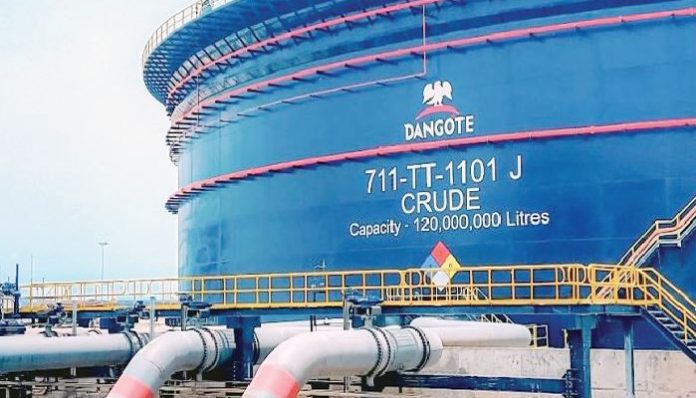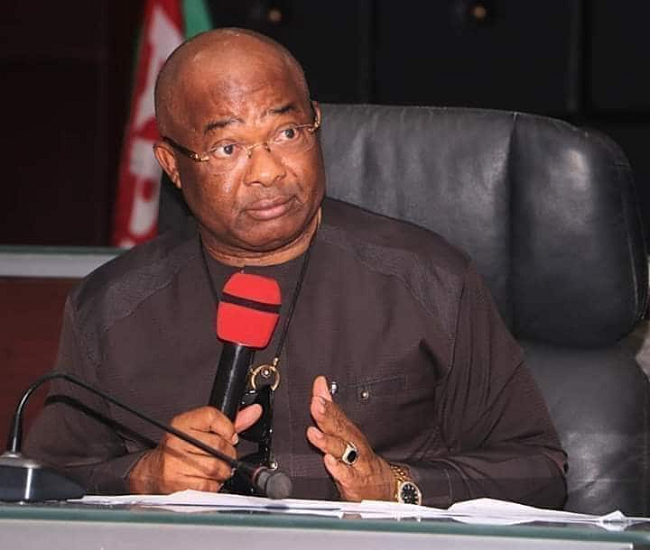Olufemi Soneye, spokesperson of the Nigerian National Petroleum Company Limited, has revealed that the state-owned energy firm reduced its stake in Dangote refinery to invest in Compressed Natural Gas.
According to Soneye, the company reduced its stake in the refinery from the initial 20% to 7.2% to channel funds into the development of Compressed Natural Gas (CNG) infrastructure across the country.
Soneye made this clarification, on the Berekete Family Radio, while addressing allegations of collusion with the Nigerian Midstream and Downstream Regulatory Commission to undermine the refinery’s operations.
Soneye was invited to discuss on allegations that the NNPC was collaborating with the Nigerian Midstream and Downstream Regulatory Commission to sabotage the Dangote refinery.
He refuted claims that the NNPC would sabotage a company in which it had a 7.2 per cent stake.
He mentioned that the NNPC realised that CNG was more affordable as a better energy alternative for Nigerians, especially during the period of energy transition.
He added that Nigerians could fuel their vehicles with N10,000 when using CNG, compared to petrol.
“The reason for reducing our stake in Dangote refinery is because we wanted to invest in CNG. We observed that CNG is very cheap and all over the world, people are investing in clean and cheaper alternative energy.
“That is why the NNPC is building different CNG stations everywhere. We understand that with N10,000, Nigerians can fill their cars and use it for two weeks. We realised that gas is cheaper in Nigeria, why don’t we invest in it?” the NNPC official stated.
On the allegation of sabotage, Soneye posited, “We want all Nigerians to know that the NNPCL does not have any issue with the Dangote Refinery. We are part of the owners of the Dangote refinery and we don’t want it to collapse.
“We invested billions of naira into the Dangote refinery. As of today, we have a 7.2 per cent stake in the refinery. So, why would we want to sabotage such a company?”
He emphasized that Farouk Ahmed, the Chief Executive Officer of the Nigerian Midstream and Downstream Petroleum Regulatory Authority (NMDPRA), was acting in his official capacity as the regulator overseeing all midstream and downstream operations, including the NNPC.
“Mr Farouk Ahmed is the head of Nigeria’s mainstream and downstream petroleum regulatory authorities. They have power over all refineries. Anything that has to do with the distribution of petrol, they are in charge. In fact, they are superior to the NNPC in that sector. We don’t have anything to do with them,” Soneye posited.
In 2021, the NNPC acquired a 7.25 per cent stake in the refinery for $1.0bn, with an option to purchase the remaining 12.75 per cent stake by June 2024. But the national oil firm has since reneged on its decision.
Alhaji Aliko Dangote, the President of the Dangote Group, disclosed in July that the NNPC had only a 7.2 per cent stake in the refinery and not 20 per cent.
“The agreement was actually 20 per cent which we had with NNPC, and they did not pay the balance of the money up until last year; then we gave them another extension up until June (2024), and they said that they would remain where they had already paid, which is 7.2 per cent. So NNPC owns only 7.2 per cent, not 20 per cent.” Dangote stated.
Oby Ezekwesili, a former Minister of Education, called for an independent audit to clarify why the NNPC’s investment in the Dangote refinery was limited to 7.2% instead of the agreed-upon 20%.
“Did the Nigerian government not tell us it borrowed $3.3bn from Afrieximbank to take a stake in the Dangote refinery?” Ezekwesili asked.
She urged President Bola Tinubu to immediately order an independent audit of the NNPC’s transaction with the Dangote refinery to provide the public with a transparent account of the deal.
Notably, Fitch Ratings recently reported that Dangote Refinery plans to sell the remaining 12.7% stake held by the NNPC this year to service its loans.
This article was written by Tamaraebiju Jide, a student at Elizade University
















